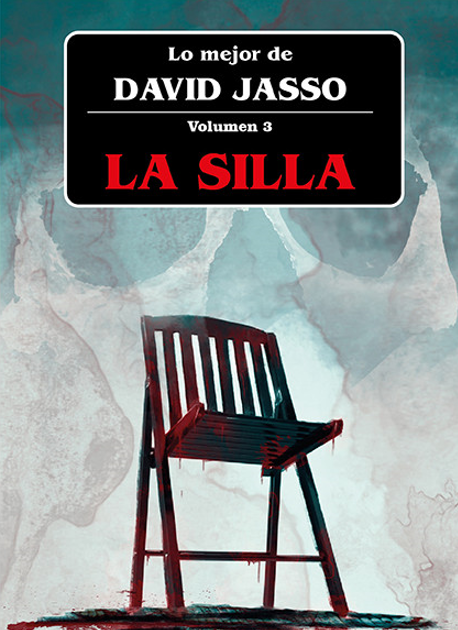
Idioma original: Español
Year of publication: 2006
Valuation: Recommended (or not)
And the truth is that this literary experience has not disappointed me in the least; after all, The chair It is a one-sit-all, entertaining and disturbing read. I understand that it won’t be to everyone’s taste, though; even those genre fans who aren’t prepared to face a plot full of cruelty won’t enjoy it.
Indeed, The chair It is extremely cruel. In these pages, Jasso transforms into a sadistic demiurge who makes his characters suffer unspeakably. The one he torments the most (both physically and psychologically) is Daniel, the protagonist of the story.
A horror writer of some renown, Daniel asks his wife Irene to tie him to a chair so that he can do research for his next novel. This decision will prove particularly unfortunate when a series of events leave him immobile and gagged in an isolated house, with Irene dead and his son Victor, a baby who cannot take care of himself, totally defenseless.
«It was funny, so much effort, so much pain, for what? (…) Yes, it was all a joke. A huge, disproportionate joke. (…) A minute passed, two. And I kept on laughing. Without humour, without joy, each laugh was a challenge, a lament. Lying face down on the floor, tied to a half-folded chair. At the limit of human degradation. Ha, ha! Violent, loud laughter. I couldn’t stop. With my wife debauching herself in the kitchen. More hysterical laughter. Yes, it was very funny. What a good joke they had played on me. And I had fallen for it like a fool. Pfff! Ha, ha! And the son suffering terrible agony in the living room, that is, if he was still alive.»
Thus, anguish, desperation and claustrophobia are some of the sensations conveyed in Jasso’s novel. Because we are faced with an agonizing race against time in which Daniel must save himself and his baby; we are faced with a story of survival and human degradation, narrated with all crudeness and viscerality.
The chair It is reminiscent (in more than one way) of Stephen King’s works such as Misery o Gerald’s gameAnd although it does not reach the quality and tension of these, it still exhibits an enviable level and a certain authorial personality.
Among its many virtues I would highlight that:
- You can’t stop reading it until you finish it.
- It makes the most of its limited premise, setting and cast.
- It has some pretty good gore or scatological passages.
- It plays appropriately with the reader’s expectations (for example, by showing how Irene, who was the woman waiting outside the protagonist’s house at the beginning of the story, dies and how the unhappy mother whose son allegedly committed suicide because of one of Daniel’s stories acts).
On the other hand, of The chair I am not entirely convinced by them:
-
Its length. The occasional digressions in the plot and the over-the-top style make the whole story lengthy.
-
Its rhythm. It loses steam at the juncture and never manages to fully recover.
-
His humor. Although well-placed at times and delightfully caustic in general, it sabotages the tone of certain scenes and diminishes the tension or anguish they evoke.
-
Its ending. In it, Jasso opts for a somewhat gimmicky supernatural twist. This does not convince me because, given that it had not been anticipated, it seems gratuitous and forced; in addition, its implications take away cruelty from the overall concept.
Source: https://unlibroaldia.blogspot.com/2024/08/david-jasso-la-silla.html


